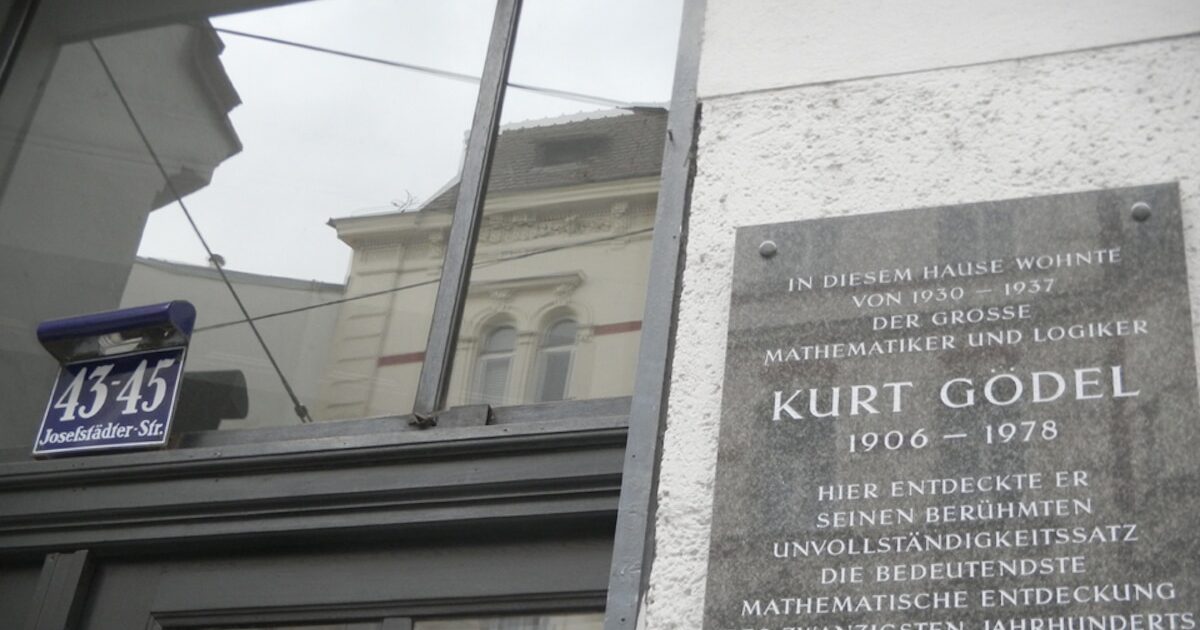 Faith & Science
Faith & Science
 Neuroscience & Mind
Neuroscience & Mind
Gödel’s Defense of the Immortality of the Soul

Recently Alexander T. Englert, a research associate at the Institute for Advanced Study in Princeton, surprised many readers at Aeon with a thoughtful essay on logician and mathematician Kurt Gödel’s defense of the immortality of the soul.
Gödel (1906–1978) is best known for destroying the materialist atheist hope that mathematics could be self-consistent without any external origin. Late in life, he also circulated among his friends an ontological proof of the existence of God, still debated today. However, he did not publish his views on the immortality of the soul to anyone except his mother, Marianne Gödel, in letters written between July and October 1961. Her side of the correspondence has not survived.
Englert tells us that Marianne asked her son for this in 1961, when he was a scholar at the Institute for Advanced Study and “in top intellectual form and thinking extensively about philosophical topics.”
So What Was His Argument?
First, Gödel believed that we live in a deeply rational world:
Gödel thinks that rationality is evident in the world through the deep structure of reality. Science as a method demonstrates this through its validated assumption that intelligible order is discoverable in the world, facts are verifiable through repeatable experiments, and theories obtain in their respective domains regardless of where and when one tests them.
ALEXANDER T. ENGLERT, “WE’LL MEET AGAIN,” AEON, JANUARY 2, 2024
Note that the order he describes is an intelligible one. That is, it can be intellectually understood. Gödel took that fact seriously. As Englert interprets his thoughts, “If the world is rationally organised and has meaning, then it must be the case. For what sort of a meaning would it have to bring about a being (the human being) with such a wide field of possibilities for personal development and relationships to others, only then to let him achieve not even 1/1,000th of it?”
Thus Gödel concluded, logically, there is another life beyond this one, in which these potentials are in fact fulfilled. His view depends on a hidden factor, of course. He was not a materialist. In fact, as noted above, Gödel single-handedly leveled the hopes of materialist atheists for a closed system for mathematics:
The incompleteness theorems proved (in broad strokes) that, for any consistent formal system (for example, mathematical and logical), there will be truths that cannot be demonstrated within the system by its own axioms and rules of inference. Hence any consistent system will inevitably be incomplete. There will always be certain truths in the system that require, as Gödel put it, ‘some methods of proof that transcend the system.’ Through his proof, he established by mathematically unquestionable standards that mathematics itself is infinite and new discoveries will always be possible. It is this result that shook the mathematical community to its core.
ENGLERT, “WE’LL MEET AGAIN“
Gödel saw human folly as an opportunity to reform and learn, because our souls are immortal whether we like it or not.
What Gödel and a Romantic Poet Have in Common
Curiously, Gödel’s view, as described by Englert, is roughly equivalent to the British poet John Keats’s notion of the world as a “vale of soul-making.” Yet Gödel arrived at it via logical reasoning. In the case of the short-lived and intensely lyrical Keats, the insight was very much from personal experience:
In one of the final letters of his life, sent to his friend and occasional caretaker Charles Armitage Brown, Keats sounds resigned: “I wish for death every day and night to deliver me from these pains, and then I wish death away, for death would destroy even those pains which are better than nothing.” Later in the same letter, he wonders, “Is there another life? Shall I awake and find all this a dream? There must be, we cannot be created for this sort of suffering.”
Keats died on February 23, 1821, at age 25.
NICK RIPATRAZONE, “WE CANNOT BE CREATED FOR THIS SORT OF SUFFERING, POETRY FOUNDATION, ACCESSED JANUARY 8, 2024
Philosopher John Hick (1922–2012) developed a similar “soul-making” theodicy “in which he argued that God allows evil and suffering in the world in order to develop humans into virtuous creatures capable of following his will” (Internet Encyclopedia of Philosophy).
This is a somewhat different line of argument from one developed by classical philosophers like Thomas Aquinas (1225–1274). He argued that the specifically human part of the soul is immortal because it apprehends immortal truths. That is, it is the sort of thing that is immortal by nature.
What About Near-Death Experiences?
The recent documentary After Death (Angel Studios 2023) has done extraordinarily well at the box office, testifying to the growing interest in the experiences of people who were conscious while clinically dead. While these experiences appear to show that the human mind or soul is capable of acting independently of the body, they do not show that it goes on to eternity. They only make it reasonable to believe that it can. The philosophical arguments, of the sort offered by Gödel, Aquinas, and others, show that we should expect the soul to be immortal, not merely that it might be.
It’s clear that materialism is coming under fire from a number of directions and the next few years in this area should be fascinating.
Cross-posted at Mind Matters News.
